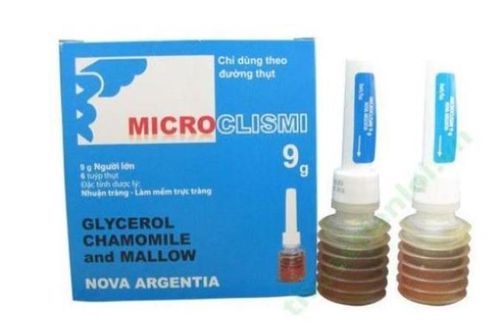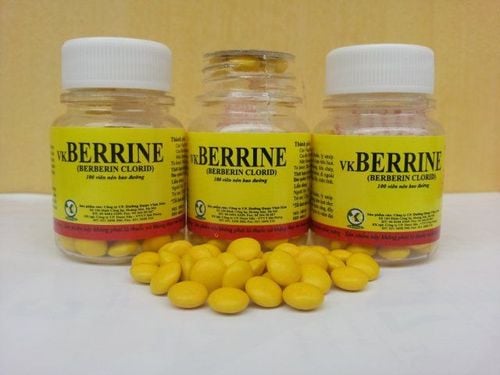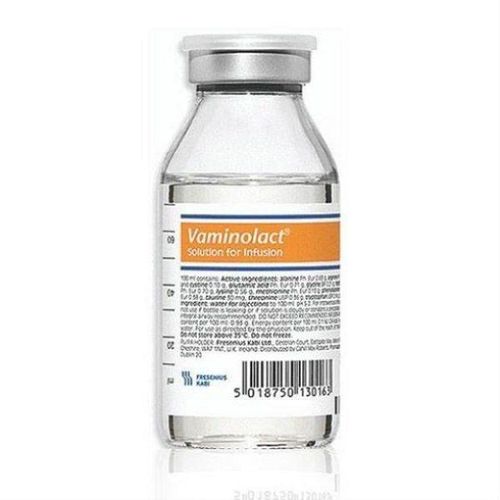This is an automatically translated article.
Posted by Master, Doctor Mai Vien Phuong - Department of Examination & Internal Medicine - Vinmec Central Park International General Hospital
Irritable bowel syndrome (IBS) is a common digestive condition that is not completely understood. Some people with IBS find that acupuncture helps relieve symptoms associated with IBS. Others see no relief with this treatment. Research on acupuncture for IBS is mixed, as is anecdotal evidence. If you have IBS and are considering acupuncture, here's what you need to know.
1. What is irritable bowel syndrome?
Irritable bowel syndrome (IBS) is an uncomfortable digestive disorder that can affect your large intestine, also known as your colon. It can cause a lot of uncomfortable and potentially embarrassing symptoms, from bloating and gas to constipation and diarrhea.
An estimated 10-15% of American adults have irritable bowel syndrome. However, only half of them receive a diagnosis and seek medical attention. A proper diagnosis from a medical professional is important for obtaining appropriate treatment and palliation.
IBS is a collection of symptoms, not a well-defined physical condition. Symptoms vary from person to person. This makes IBS difficult to diagnose. To help make an accurate diagnosis, your doctor may use a variety of tests.
2. How will your doctor diagnose your illness?
Your doctor will start by compiling your complete medical history and performing a physical exam. To learn more about your health, they will ask you questions about:
Possible stressors in your life Past or present infections Past or present symptoms at Family history of this condition Medicines that can make your symptoms worse It is important to let your doctor know when your symptoms started and how often you have them. This will help identify patterns between your behavior and discomfort.
Diagnostic tests
Your doctor may order a variety of diagnostic tests if you are experiencing severe or additional symptoms such as weight loss, anemia, and blood in your stools. While these tests are not required to diagnose IBS, they can rule out other potentially serious conditions.
Blood tests
Blood tests can help rule out celiac disease. This is a wheat allergy that causes symptoms similar to IBS such as cramping and intestinal pain.
Stool test
A stool sample can check for the presence of blood or parasites, which may indicate an infection.
Evaluation of the lower digestive tract
For this test, your doctor uses X-ray images of your intestines to check for possible blockages. Before the test, your doctor will insert baryt (a contrast medium) into your intestines through a tube in your anus. Baryt is a liquid that makes the intestines more visible on an X-ray.
Flexible colonoscopy or colonoscopy
These diagnostic procedures allow your doctor to view your rectum and colon with a small camera attached to a thin tube. The tube is inserted gently into your anus. As with colonic tests, this diagnostic procedure usually requires a liquid diet and enema prior to the examination. Taking a sedative may also be an option.
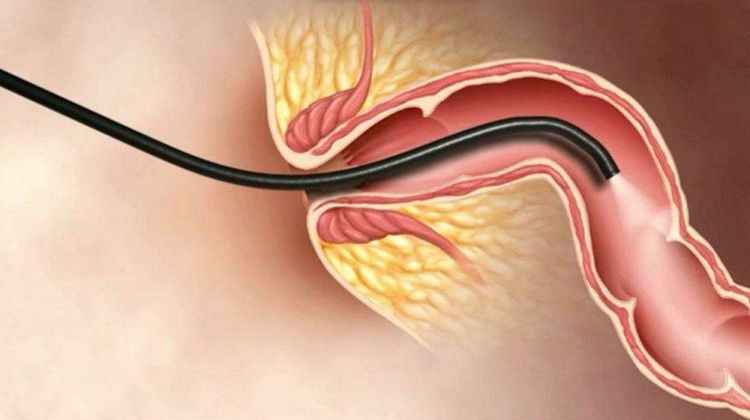
How does acupuncture work?
Acupuncture is an ancient healing method that has its roots in Traditional Medicine. Acupuncturists insert hair-thin needles into specific points on the body to release blocked energy and correct imbalances. These acupuncture points correspond to and stimulate the internal organs of the body.
One possible explanation of why acupuncture works is that acupuncture points help stimulate the nervous system, releasing chemicals and hormones that make it feel good. This can reduce feelings of pain, stress, and other symptoms.
3. Can acupuncture relieve IBS symptoms?
IBS symptoms vary and can include:
Diarrhea Constipation Abdominal pain or cramping Abdominal bloating Enlarged abdomen and bloating Mucus in stools Acupuncture's ability to alleviate these symptoms is important focus of many studies, with mixed results.
For example, a study of 230 adults found very little difference in IBS symptoms between acupuncture participants and placebo (placebo) acupuncture participants.
However, both groups experienced a greater reduction in symptoms than the control group without needles. This result may indicate that the positive results from acupuncture are due to the placebo effect. At least one other study has supported this finding.
A meta-analysis of six randomized, placebo-controlled clinical trials showed mixed results. However, the researchers who wrote the analysis concluded that acupuncture can significantly improve quality of life for people with IBS. Benefits were seen for symptoms such as abdominal pain.
One small study that compared abdominal acupuncture with traditional Western medicine found that acupuncture was more effective in alleviating symptoms such as diarrhea, pain, bloating, fecal incontinence, and stool abnormalities .
Anecdotal evidence among some IBS users also varies. Many people swear by acupuncture, and others find no evidence that it helps.
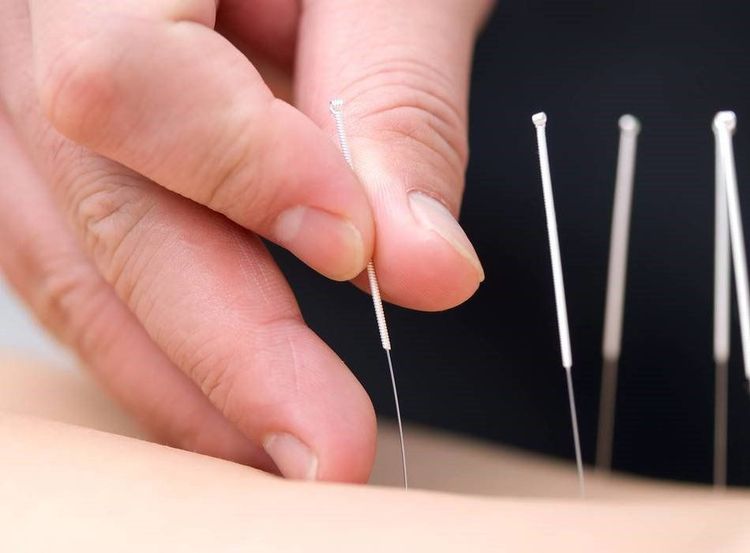
4. Are there home remedies or other lifestyle measures that can help relieve IBS symptoms?
Whether acupuncture helps you or not, you can take other measures to relieve symptoms. For example, you can try to eliminate trigger foods.
Food diary to help identify trigger foods
Food journaling can help you identify and isolate foods that trigger IBS symptoms. These vary from person to person but may include:
Fatty foods Gluten Sweets Alcohol Diary Caffeine Chocolate Sugar substitutes Vegetables Garlic and onions Try adding more fiber to your diet In addition to avoiding certain trigger foods, you can also try adding more fiber-rich foods to your diet.
Eating foods rich in fiber can help with digestion, allowing your intestinal tract to function optimally. This can alleviate symptoms such as bloating, gas, and pain. A high-fiber diet can also soften stools, making them easier to pass.
High-fiber foods include:
Clean vegetables Fresh fruits Grains Flaxseeds Increase your water intake

In addition to eating more fiber, try increasing your water intake. Drinking six to eight cups of water a day will help maximize the benefits you get from eating fiber.
Conclusion
IBS is a common digestive disorder characterized by symptoms such as pain, bloating, and bloating. It can significantly reduce a person's quality of life.
Researchers have studied acupuncture's ability to relieve IBS symptoms extensively, but results to date have been mixed. Some people find acupuncture beneficial and others do not.
There may be very little risk in trying acupuncture, and it may provide some relief. Work with a licensed acupuncturist in your state. Often multiple hits are needed before any noticeable change occurs.
Other medical treatments, as well as lifestyle changes, are available that can help people with IBS see a significant reduction in symptoms. See your doctor about alternative therapies if acupuncture doesn't help.
Currently, Vinmec International General Hospital is a prestigious address trusted by many patients in performing diagnostic techniques for digestive diseases, short bowel syndrome, chronic diarrhea, Crohn's disease , misplaced gastric mucosa in the esophagus, reflux esophagitis...
Vinmec Hospital with modern facilities and equipment and a team of experienced experts, always dedicated to treatment patients, customers can rest assured with gastroscopy and esophagoscopy services at Vinmec International General Hospital.
Please dial HOTLINE for more information or register for an appointment HERE. Download MyVinmec app to make appointments faster and to manage your bookings easily.
ReferencesAnastasi JK, et al. (2012). The treatment of bowel constipation-predominant irritable syndrome with acupuncture and moxibustion: A case report. ncbi.nlm.nih.gov/pmc/articles/PMC5644494/ Chao G-Q, et al. (2014). Effectiveness of acupuncture to treat irritable bowel syndrome: A meta-analysis. DOI: 10.3748/wjg.v20.i7.1871 “Doctor, what's this acupuncture all about?” (n.d.). medicalacupuncture.org/For-Patients/Articles-By-Physicians-About-Acupuncture/Doctor-Whats-This-Acupuncture-All-About Foods to choose if you have mixed irritable bowel syndrome. (2014). my.clevelandclinic.org/health/articles/13096-foods-to-choose-if-you-have-mixed-irritable-bowel-syndrome Lembo AJ, et al. (2009). A treatment trial of acupuncture in IBS patients. ncbi.nlm.nih.gov/pmc/articles/PMC2694961/






